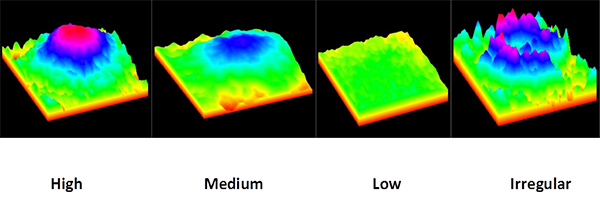This study by Paul S. Bernstein, Faisal Ahmed, Aihua Liu, Susan Allman, Xiaoming Sheng, Mohsen Sharifzadeh, Igor Ermakov, and Werner Gellermann in IOVS examined the macular pigment in AREDS2patients. AREDS2 is a randomized, placebo-controlled study designed to determine whether supplementation with 10 mg of lutein and 2 mg of zeaxanthin per day can slow the rate of progression of age-related macular degeneration (AMD). In this approved ancillary study, the authors measured macular pigment optical density (MPOD), macular pigment distributions, and skin carotenoid levels at enrollment and at each annual visit to assess baseline carotenoid status and to monitor response to assigned interventions. Baseline MPOD in enrolled subjects was unusually high relative to an age-matched control group which did not consume carotenoid supplements regularly, consistent with the high rate of habitual lutein and zeaxanthin consumption in Utah AREDS2 subjects prior to enrollment. MPOD did not correlate with serum or skin carotenoid measurements. This ancillary study provides useful information on the ocular carotenoid status of AREDS2 participants at the Moran Eye Center study site in the target tissue of lutein and zeaxanthin supplementation, the macula of the human eye. When treatment assignments are unmasked at the conclusion of the study, the authors will be able to provide unique tissue-based insights on the progression of AMD in response to long-term, high-dose carotenoid supplementation versus diet alone.
